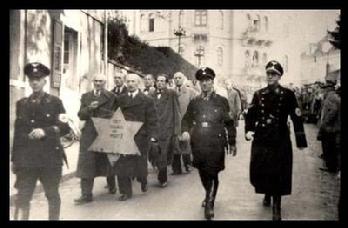Additional Articles on Genocide
Managing outrage over genocide: case study Rwanda by Brian
Martin, published in Global Change, Peace, & Security, Vol. 21, No. 3, October 2009
The Pain of the G-8's Big Shrug by Nicholas D. Kristof, The New York Times, 10 July 2008
Redefining Genocide by Kok-Thay Eng
International Intervention and the Severity of Genocides and Politicides by Matthew Krain, International Studies Quarterly, September 2005
The World Was Silent by Sarah Cohen, Teaching Tolerance, Fall 2002
Bamboozling the U.S. Public About the I.C.C. By Professor Benjamin Ferencz, former Nuremberg Prosecutor
A Kurdish View for Peace by Asad Gozeh
Holocaust and Genocide in the Wake of the Twin Towers by Professor Yehuda Bauer, Aegis Conference, Nottingham,
England, January 2002
Group Classification on National ID Cards as a Factor in Genocide and Ethnic Cleansing by James Fussell, Education Director, Prevent Genocide International, presented to the Yale Genocide Studies Program, November 2001
The Responsibility to Protect Report of the International Commission on Intervention and State Sovereignty 2004
Eight Stages of Genocide mural painted in Belfast, 25 September 2004.
Articles by Genocide Watch Director Dr. Gregory Stanton
'Ethnic cleansing' bleaches the atrocities of genocide by Rony Blum, Gregory H. Stanton, Shira Sagi, and Elihu D. Richter, The European Journal of Public Health
Building an Anti-Genocide Regime forthcoming in Genocide: An Annotated Bibliographical Review, edited by Samuel Totten.
Proving Genocide in Darfur: The Atrocities Documentation Project and Resistance to Its Findings.
Facing Mass Murder in Zimbabwe by Gregory Stanton and Kevin Engle, 12 August 2005.
Seeking Justice in Cambodia: Realism, Idealism, and Pragmatism.
Early Warning in the Encyclopedia of Genocide and Crimes Against Humanity, Thomson-Gale, 2005.
Five Misconceptions about Using the Word Genocide, 23 June 2004
Bloodbath in the Making: Darfur, Sudan Toronto Globe and Mail, 2 April 2004.
Audio- Iraq: A Case Study on the Roots of Genocide, National Public Radio, 18 February 2004.
Transcript of NPR Report from 18 February 2004.
Working Paper for the Stockholm Forum on Genocide Prevention: Create a United Nations Genocide Prevention Focal Point
and Genocide Prevention Center, January 2004.
The Genocide Prevention Center: A Proposal, March 2004
